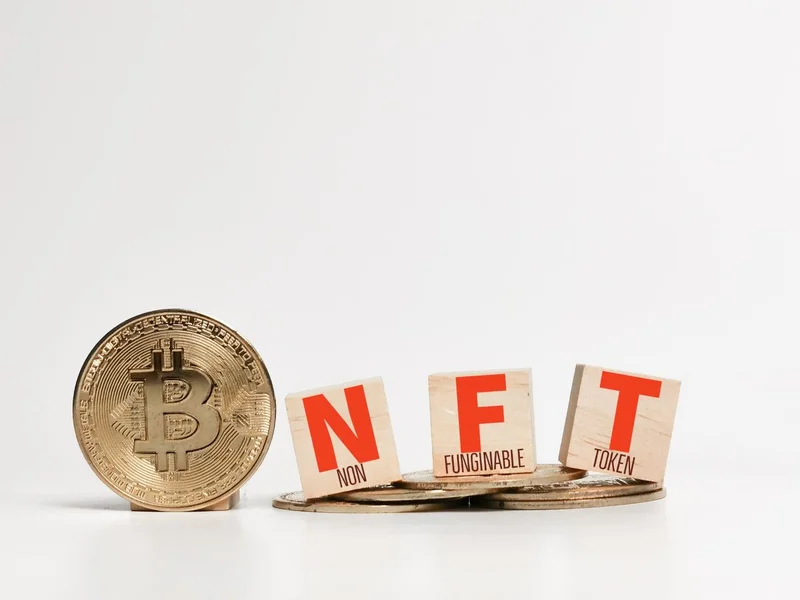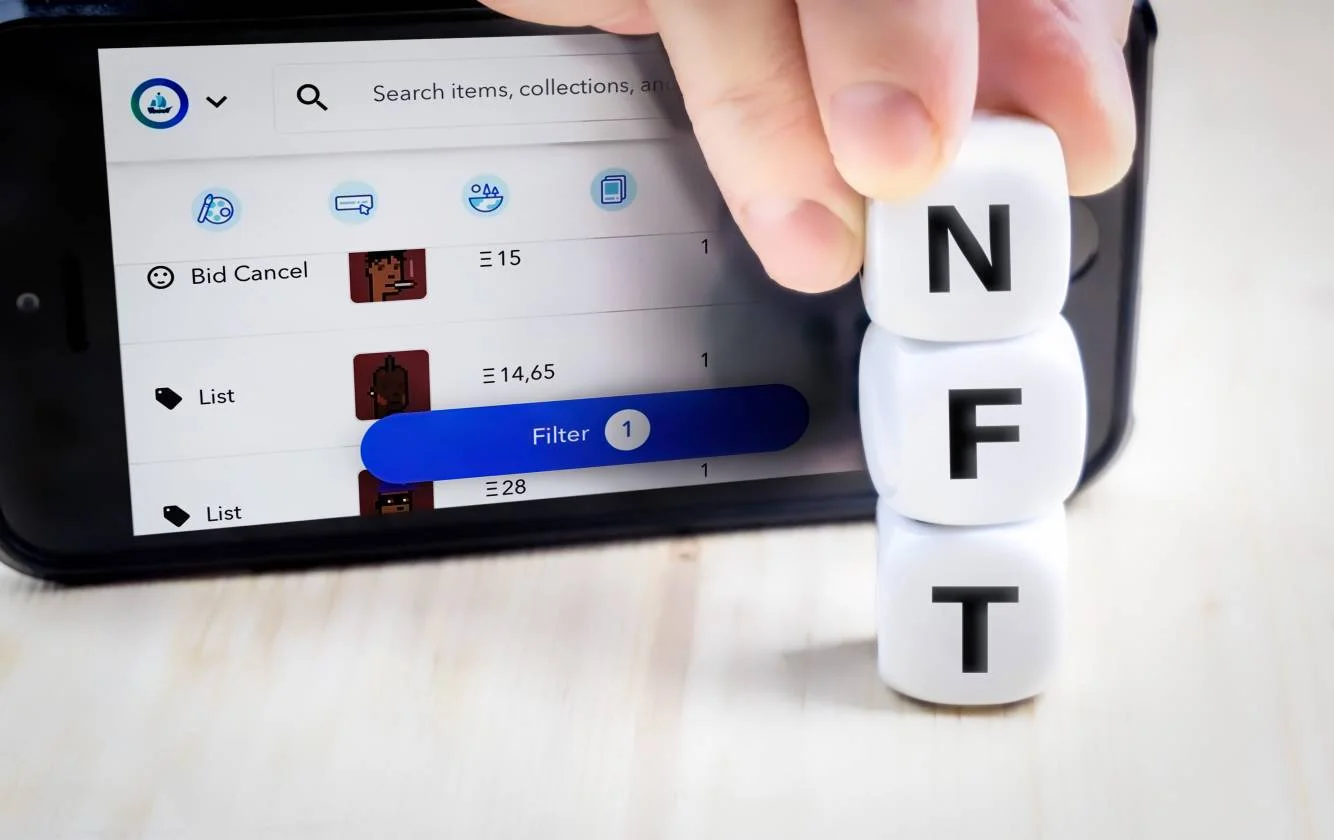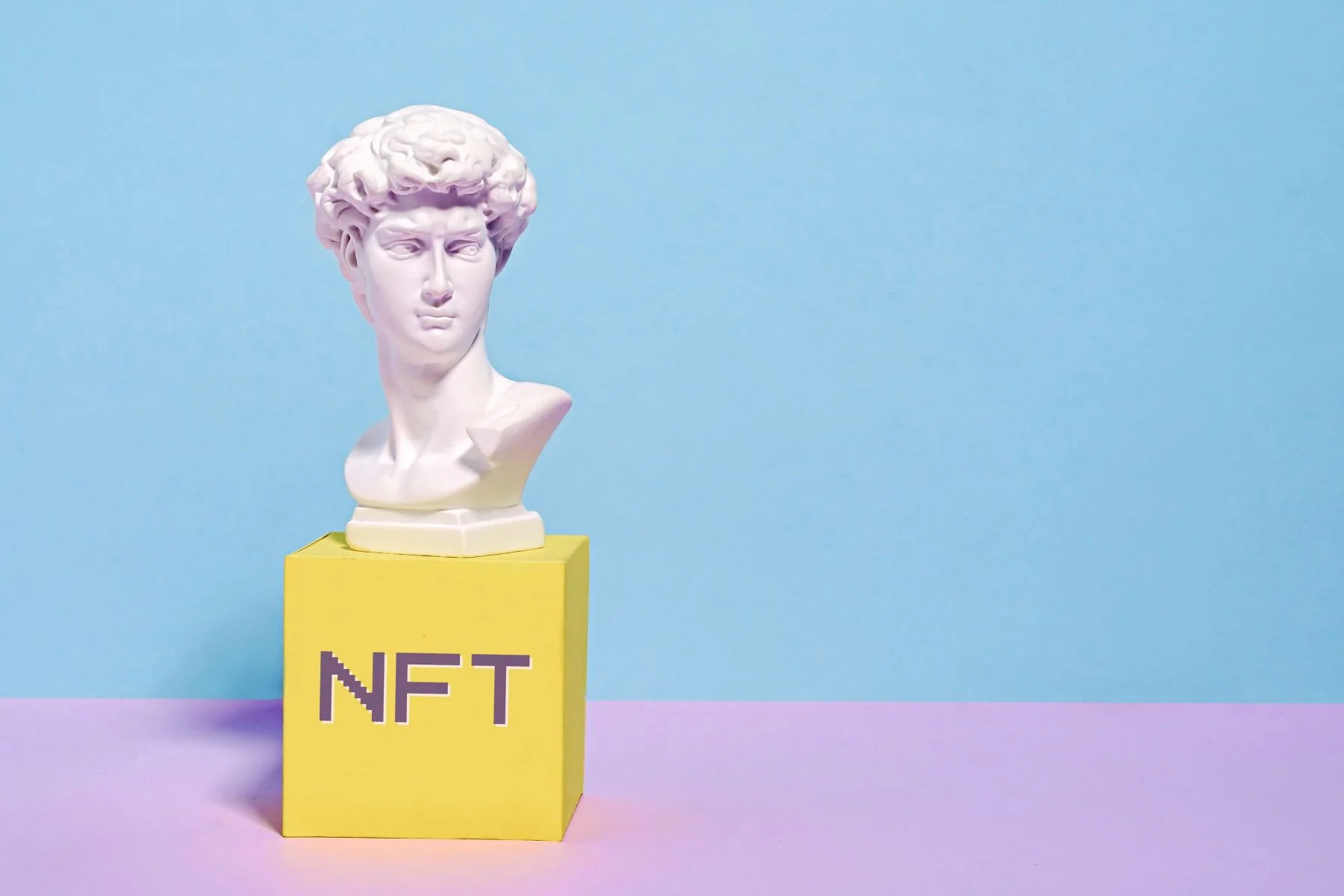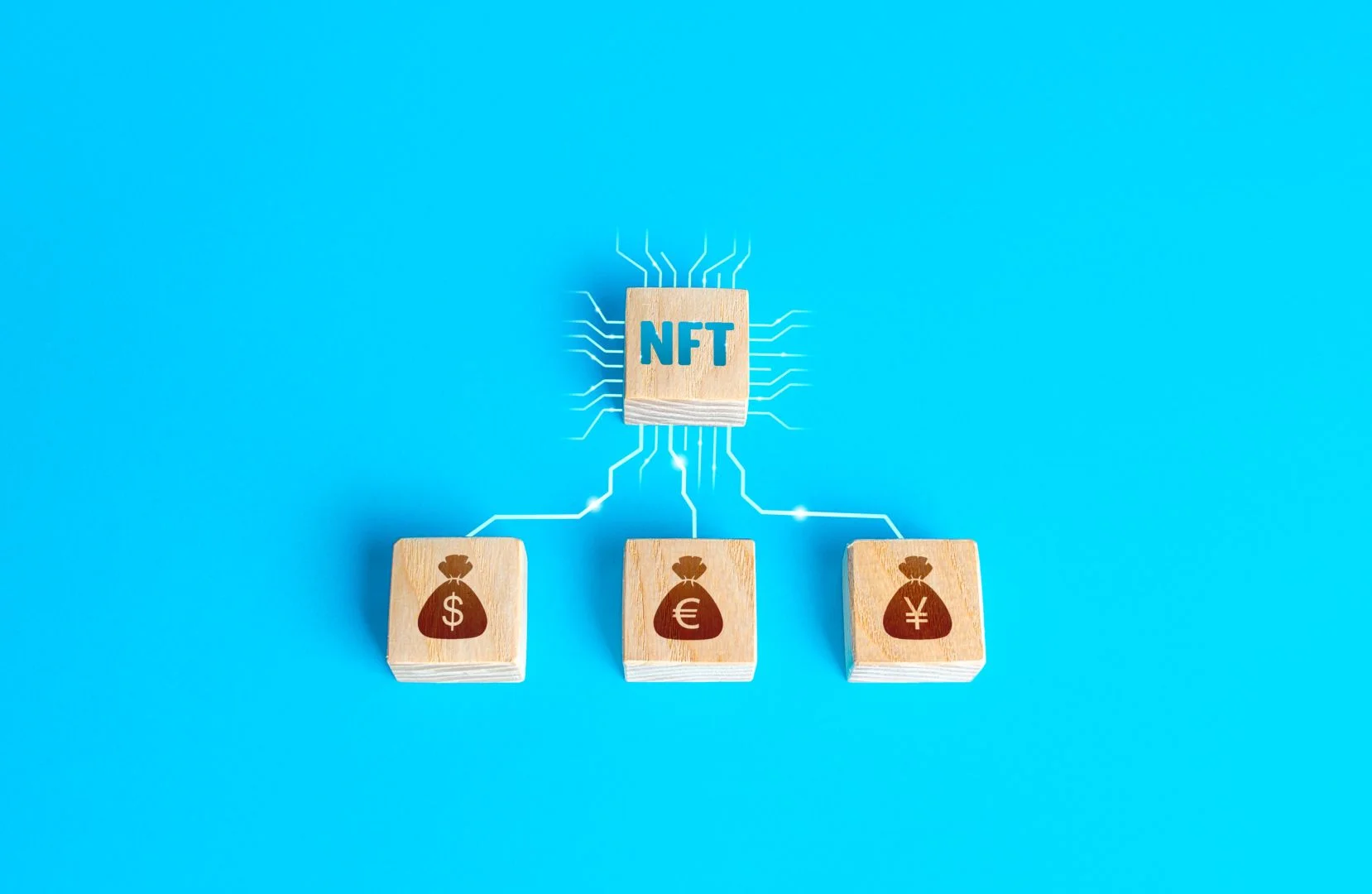
Email:
Follow us:

You have probably heard the term NFT being thrown around in the news and social media recently, but you are not sure what it means. NFT or Non-Fungible Token is the newest and most valuable digital asset in the world today. It is a unique digital asset that can represent anything from art to music, memes, and even tweets.
If you have been wondering what NFT means, how they work, and how you can profit from them, keep reading. This blog post provides a comprehensive guide to NFT for dummies.
Non-Fungible Tokens are unique digital assets that represent ownership or proof of authenticity of a particular item or piece of content. It’s like IP rights but using the blockchain to authenticate ownership.
They are unlike cryptocurrencies, which are bound to real-world rules and can be distributed on a one-to-one basis. They are typically stored in a digital wallet that is secure and authentic, also unique to its owner. Based on the type of digital asset, there are just as many digital wallets available for use.
NFTs are typically built on blockchain technology, which ensures their security, transparency, and immutability. Each NFT is assigned a unique identifier, making it impossible to replicate or counterfeit within the NFT marketplace. This unique feature has sparked a revolution in the world of digital assets, opening up new possibilities for creators, collectors, and investors alike.

The value of digital assets has often been a topic of debate. Critics argue that since digital content can be easily copied or reproduced, it lacks inherent value. Digital assets are essentially any digital content or media that has value. This includes images, utility tokens, videos, music, cryptocurrency, security tokens, and more.
One of the main benefits of digital assets is that they are easily transferable and have no additional costs associated with storage or transportation. Despite being criticized, this makes them an attractive investment option for many individuals.
One of the biggest advantages of digital assets is their permanence. Unlike physical assets that can be destroyed or lost, digital assets are protected by the decentralized blockchain technology, which ensures that they remain secure and unchanging. This is especially appealing for individuals investing in digital art.
Another factor contributing to the increasing popularity of digital assets is their scarcity. NFTs have become a popular digital asset because they are unique and cannot be replicated. This creates a sense of exclusivity among collectors and raises the overall value of the asset. The more rare and unique an asset is, the more valuable it becomes.
The popularity of digital assets has opened up new opportunities for creators and artists. They are now able to create content and showcase their work to a global audience without the need for a physical space or infrastructure. This allows them to earn a living from their creations and build a fanbase without the constraints of traditional avenues.

One of the most significant impacts of NFTs can be seen in the art world. NFTs offer several benefits to artists and collectors. They allow artists to sell their digital art in a secure, transparent, and decentralized manner.
For example, the artist Beeple sold his digital artwork "Everydays: The First 5000 Days" for a whopping $69 million at a Christie's auction. This sale boosted the popularity of NFTs and signaled that digital art can be worth just as much as traditional paintings or sculptures.
In addition to financial benefits, NFTs also offer a way for artists to interact with their fans and collectors directly. They can offer exclusive access to their art, as well as create unique collections for their fans. Collectors, on the other hand, can purchase and own a piece of the artist's work forever. This means that they can appreciate the art and also sell it for profit in the future.
Moreover, NFTs have created a new wave of artists who specialize in digital art, animation, and gaming. These artists were previously overlooked by galleries and museums, but NFTs have given them a platform to showcase their work and reach a broader audience. Currently, the demand for digital art is higher than ever, making it an ideal time for artists to create and sell their digital creations.
The level of transparency that NFTs provide is on a whole new level. With NFTs, all the artwork's details, including its provenance, ownership history, and sale price, are publicly available on blockchain technology, making it harder to forge or fake the artwork.
Collectors can rest assured that they are acquiring a legitimate piece of art, and artists can benefit from the exposure and attention that comes with the transparency of NFT sales.
Lastly, NFTs have also opened up a new wave of collaborations and partnerships within the art world. Brands, musicians, and celebrities are entering the NFT market, creating co-branded collections with artists and selling them for astronomical sums. Examples include Grimes, who sold her digital art collection for $6 million, and Kings of Leon, who released their album as an NFT.

The world of music has always been known for its innovation and creativity. It has always welcomed new technology and found ways to incorporate it into the industry. Today, we are witnessing a new innovation that is set to revolutionize the music industry and change the way musicians monetize their work.
Non-Fungible Tokens have emerged as a new way for musicians to sell their music and connect with their fans in an unprecedented way.
Even before the pandemic, the music industry was struggling to find ways to monetize their artists’ work. NFTs offer a new and exciting revenue stream for musicians. For example, artists can create unique digital assets such as concert tickets, backstage passes, or even virtual meet and greets.
These assets can then be sold on blockchain marketplaces, like Opensea or Nifty Gateway. A digital certificate that demonstrates the authenticity and the uniqueness of the given asset is what gives a fan-musician relationship the commercial freedom it deserves. In March of 2021, electronic music artist 3LAU sold 33 NFTs for a staggering total of $11.6 million, making history as the largest NFT sale to date.
NFTs also offer a unique opportunity for musicians to engage with their fans on a deeper level. Fans can buy and own a piece of their favorite musician’s work, creating a sense of exclusivity. This creates an exciting new way for fans to support their favorite musicians while feeling connected to them in a more meaningful way.
One of the biggest challenges that the music industry faces is piracy. NFTs offer a new way for the industry to fight piracy by providing a secure, decentralized way to distribute music. With the help of blockchain technology, musicians can ensure that their music is only accessible to those who have purchased and own the NFT.
The music industry has traditionally been dominated by a few big players who have controlled how music is distributed and monetized. NFTs offer a way to democratize the industry by allowing artists to have ownership and control over their work. This makes it easier for emerging artists to monetize their work and build a following without having to rely on traditional industry gatekeepers.
While NFTs offer exciting potential in the world of music, there are also concerns about their environmental impact. The energy required to create and maintain blockchain networks can have a significant carbon footprint.
Some artists, like English singer Imogen Heap, have created eco-friendly NFTs by using blockchain solutions that use less energy. As the industry continues to evolve, finding sustainable ways to use this technology will become increasingly important.

Gaming has always been an immersive and engaging experience, allowing players to escape to a world of their own, where they can be whoever they want to be and do whatever they want to do. With the rise of blockchain technology and the advent of Non-Fungible Tokens, gaming is about to reach a new level of player immersion and engagement.
One of the most significant advantages of NFTs in gaming is the level of ownership they provide. NFTs represent a digital asset that is unique, meaning that a player can own it exclusively. In-game items like skins, weapons, a virtual land, and characters can now be players' property. Additionally, NFTs can increase in value over time, providing an opportunity for players to invest in their digital assets.
NFTs can be used to monetize in-game assets by providing a marketplace for players to sell and buy unique items. Game developers can earn a share of each sale, providing an additional revenue stream. It can also create a more immersive gameplay experience for players that includes the thrill of collecting unique items, leading to increased engagement and revenue.
NFTs can be used to create interoperability between games. Players could use the same NFTs in multiple games, making it an attractive prospect for players and game developers. This can result in higher player retention and cross-promotion. Furthermore, this interoperability can also create new game modes and experiences that wouldn't have been possible without the cross-game integration.
NFTs can provide a level of authenticity to in-game assets that was previously nonexistent. Players can be sure that their in-game item is unique and cannot be replicated. This level of authenticity can create a sense of scarcity, making these unique items highly sought after.
It can also provide an opportunity for players to show off their unique and rare assets to their friends, creating a sense of pride and accomplishment.
The implementation of NFTs in gaming can create new game design possibilities. Developers can create games that are entirely based on the NFT economy, leading to unique and innovative gameplay. Furthermore, game developers can use NFTs to crowdsource game development by allowing players to create and upload their assets. This could result in a community-driven game with a unique player base.
For those looking to enter the world of NFT investing, it's essential to understand the basics. Investing in NFTs can be highly lucrative, but it also carries risks. Before diving in, it's crucial to research the market, educate oneself on the different types of NFTs, and understand the factors that drive their value.
The value of NFTs is often determined by their rarity, historical significance, and the prestige of the creator behind them. Established artists with a strong track record are more likely to attract buyers and increase in value over time. Additionally, scarcity and uniqueness play a significant role in determining the value of an NFT. Rare or limited edition NFTs tend to command higher prices in the market.
Unlike cryptocurrencies (like Bitcoin or Ethereum) that have a market value that can fluctuate rapidly, NFTs are valued based on sentimental value, subjective elements, and market trends. Some NFTs can sell for millions of dollars, while others only cost a few dollars. It all depends on who wants to buy the NFT and how much they are willing to pay.
Before you invest in NFTs, it is essential to do your research and understand the risks involved. Because NFTs are still relatively new, their value and popularity can be volatile. You should only invest money that you can afford to lose, and it's a good idea to start with a small amount.
To invest in NFTs, you will need to use a platform that supports them. There are several marketplaces like OpenSea, Rarible, and SuperRare that enable you to purchase NFTs using cryptocurrency. The entire process is similar to buying a product online, except that you need a digital wallet to store your NFTs.
Once you purchase an NFT, you should store it in a digital wallet. You can store your NFT on the platform where you bought it, but it's a good idea to transfer it to a hardware wallet that you control. This is because there have been instances of platforms being hacked, which could result in your NFT being lost or stolen. Make sure you use secure and reputable digital wallets to protect your investment.

Once you delve into the virtual world of NFTs, real-world assets seem to hold no sway over you. Here are some interesting ways you can monetize NFTs.
One of the best ways to make money from an NFT is by selling it. NFTs can be sold on various platforms, such as OpenSea, Nifty Gateway, SuperRare, and many more. The value of an NFT is determined by how much someone is willing to pay for it, and the price of NFTs can range from a few dollars to millions of dollars. To create an NFT, you need to create digital content such as artwork, music, or videos. Once you have created your digital content, you can upload it on an NFT marketplace and put it up for sale.
Another way to make money from an NFT is by getting royalties on resale. When you sell an NFT, you can set a percentage fee that you will receive for every resale of the NFT. This is a great way to earn money over time, as NFTs can be resold multiple times on the secondary market. Some NFT marketplaces automatically collect royalties for creators, but others require the creator to set up this feature manually.
Staking is the act of holding an NFT to earn rewards. NFT holders can stake their tokens and earn rewards in the form of other cryptocurrencies. This is a great way to earn passive income by simply holding your NFT. Staking typically requires a minimum holding period and a minimum number of tokens.
Fractional ownership is the act of owning a portion of an NFT. This allows investors to own a percentage of high-value NFTs and share in the profits. Fractional ownership is a new market that is still in its infancy, but it has the potential to unlock new investment opportunities for people who cannot afford to buy an entire NFT.
NFTs are also being used in gaming and metaverse projects. NFTs in gaming can be used as in-game items, where players can buy, sell, and trade unique assets. Metaverses, on the other hand, are virtual worlds that operate on blockchain technology and allow people to interact with each other in a virtual space. NFTs can be used to represent virtual land, buildings, and items in metaverse projects. As the gaming and metaverse markets continue to grow, there will be more opportunities for people to make money from NFTs.
To buy, sell, or trade NFTs, one must navigate the various marketplaces and platforms that have emerged. These platforms act as digital marketplaces where collectors, artists, and investors can transact with NFTs. Each platform has its unique features, user interface, and fee structure, so it's important to choose the right platform based on individual needs and preferences.
With a growing number of platforms such as OpenSea, Nifty Gateway, and SuperRare, these marketplaces offer an unprecedented level of accessibility and transparency to artists, collectors, and investors. They offer a range of features including bidding, auctions, fixed price sales, and custom contracts which enable creators to sell their works at the price they deem appropriate.
In addition, they provide a robust infrastructure for creators to showcase their works and maintain ownership rights. As the adoption of NFTs continues to grow, the potential for these marketplaces and platforms to revolutionize the world of art and collectibles is immense.
As the popularity of NFTs continues to grow, questions regarding intellectual property rights and ownership have come to the forefront. While NFTs provide a unique way to prove ownership of digital content, they do not necessarily grant ownership of the underlying intellectual property rights.
Creators must be aware of the legal implications and potential copyright issues when minting and selling NFTs. It's essential to ensure that the content being tokenized does not infringe upon the rights of others and that all necessary permissions and licenses are obtained. Additionally, buyers should be cautious when purchasing NFTs, ensuring that the creator has the legal right to sell the content.
The future of NFTs is undoubtedly bright, with the potential to revolutionize various industries and empower creators and collectors alike. As more artists, musicians, and developers embrace NFTs, we can expect to see a continued expansion of the market and the emergence of new and exciting use cases.
Additionally, advancements in blockchain technology will likely address some of the current challenges associated with NFTs, such as high transaction fees and environmental concerns. As technology evolves, NFTs may become more accessible, sustainable, and integrated into our everyday lives.
In conclusion, NFTs have ushered in a new era of digital ownership and creativity. From art and music to gaming and investing, NFTs have the power to transform industries and empower individuals. As with any emerging technology, it's important to approach NFTs with caution and educate oneself on the intricacies of the market.
By understanding the value of digital assets, exploring the potential of NFTs across different industries, and staying informed about the latest developments, individuals can unleash the power of NFTs and participate in this exciting digital revolution.
And speaking of a digital revolution, it is just as crucial to be able to participate in it with the right payment processor to process your payments securely. With UniPayment, you can make this happen and in a way that best suits your business needs.
Our multi-functional cryptocurrency payment gateway provides a robust platform that streamlines the process of accepting and managing crypto payments. At UniPayment, we prioritize security by implementing state-of-the-art security features that ensure the safety of your crypto transactions. With our dedicated team of experts, we provide unparalleled support to ensure that your business operates seamlessly in the crypto exchange realm.
So, why wait? Join the cryptocurrency revolution with UniPayment and register for a Free To Try service.